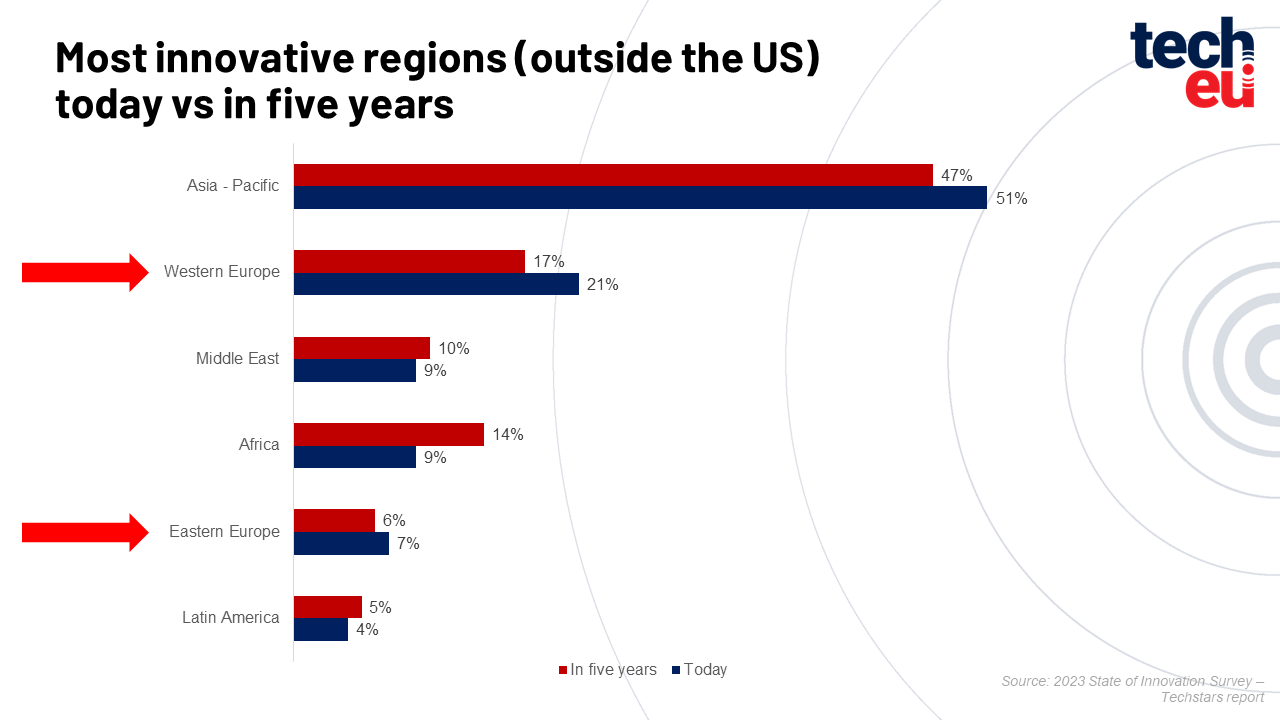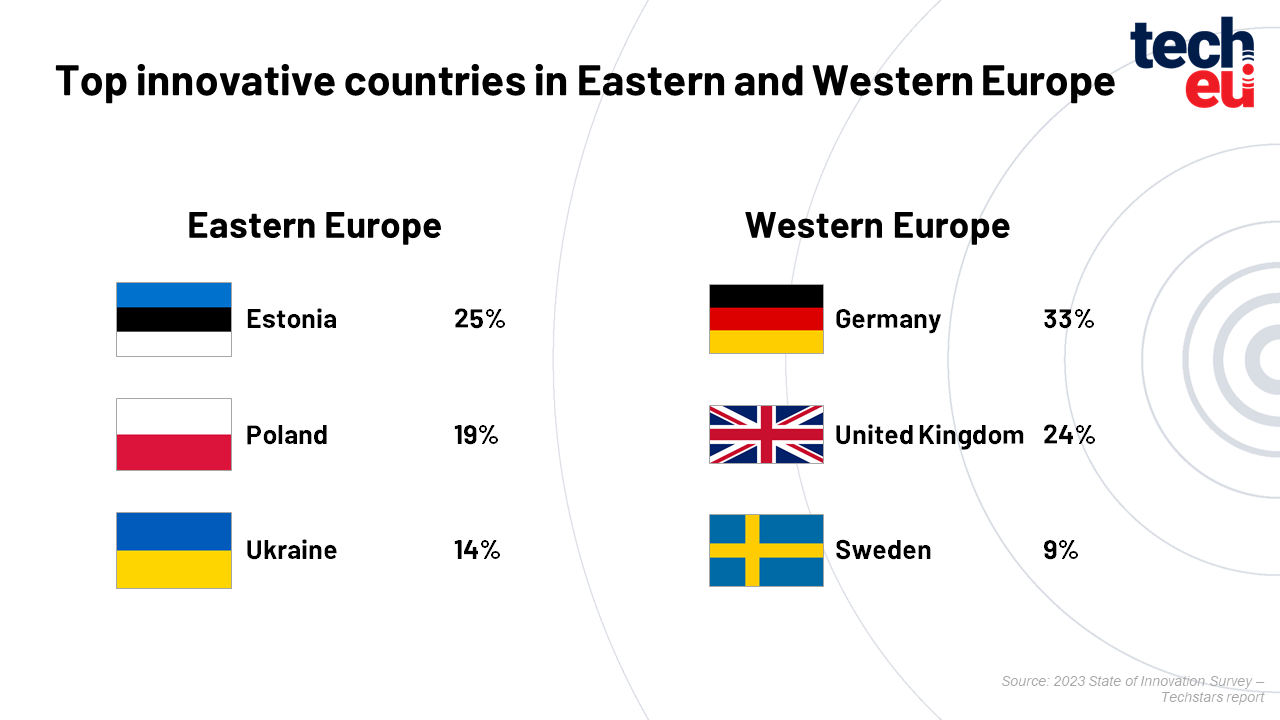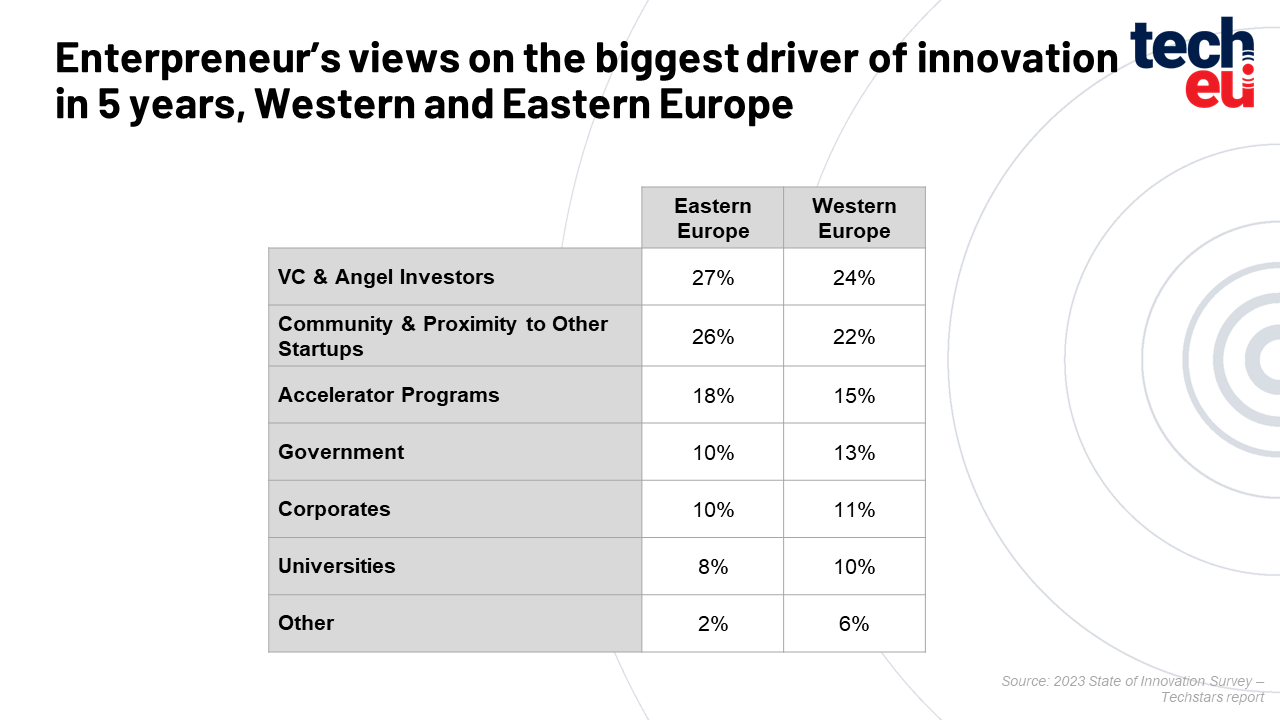The tech ecosystem, by nature, is characterised by innovations, entrepreneurial initiatives, specialisation, investments, etc. When analysing it, we try to understand what characterises the best ones, why they stand out, what their plans are, and how they recognise which current opportunities they want to seize in order to create long-term benefits.
So, what drives innovation? Which sectors, hubs, and regions are considered the most innovative today? What are the predictions for the future, how many founders are founders, how many are serial entrepreneurs, etc? The answers to these, and many other questions, are proposed in the "2023 State of Innovation Survey“ report published by Techstars, one of the largest pre-seed investors in the world.
The research covered all regions globally, but here we'll focus on the European share and its position on a global level.
On the list of most innovative cities, London takes fifth place on the world list (26%), right after New York, Singapore, Tel Aviv, and Silicon Valley. Among European cities, Berlin is also on the list, just behind London (6th place), following Amsterdam (12th place) and Paris (16th place). Five years from now, according to the respondents' answers, innovative aspects will be better in Amsterdam and Paris, while they'll decline in the case of London and Berlin (to sixth and seventh place respectively).
Regionally (excluding the US), Western Europe is the second most innovative region, while Eastern Europe is fifth on the list. In a period of five years, it is expected that innovation will decrease, but both Western and Eastern Europe will maintain their positions. Generally, only Africa, the Middle East, and Latin America are expected to grow their innovation.

Those who consider Eastern Europe to be the most innovative region today, think that Estonia is the most innovative country in Eastern Europe (25%), with Poland (19%) in second place, and Ukraine (14%) in third. However, in five years, 25% of respondents predict Ukraine will be the most innovative, with Poland rising to 21%, and 16% backing Estonia.
In Western Europe, the most innovative country is Germany (33%), with the UK in second place (24%), following Sweden (9%). In the next five years, 33% of respondents expect Germany to continue as the frontrunner, while the UK remains in second place (21%), with France (9%) moving into the top three.

As the most innovative sector in the next five years in Western Europe, 53% of respondents indicated Sustainability. This is expected considering the great number of initiatives around fulfilment but also and increasing awareness of the importance of ESGs.
What drives the innovation?
Entrepreneurs have different views about who will be the key drivers of future innovations in their sector. According to them, innovations mainly depend on:
- experiences
- geography
- specialisations
- funding stage
In both Western and Eastern Europe, most of the entrepreneurs who participated in the research see VCs and angel investors as key drivers in the next five years. In second place are the general community and proximity to other startups as the biggest drivers of innovation, following accelerator programs, Governments, corporates, Universities, and others.

The survey for the report was conducted in the period December 2022 - January 2023 on over 1,600 individuals from the entire Techstars network. The report can be downloaded here.
Lead image: 𝓴𝓘𝓡𝓚 𝕝𝔸𝕀



Would you like to write the first comment?
Login to post comments